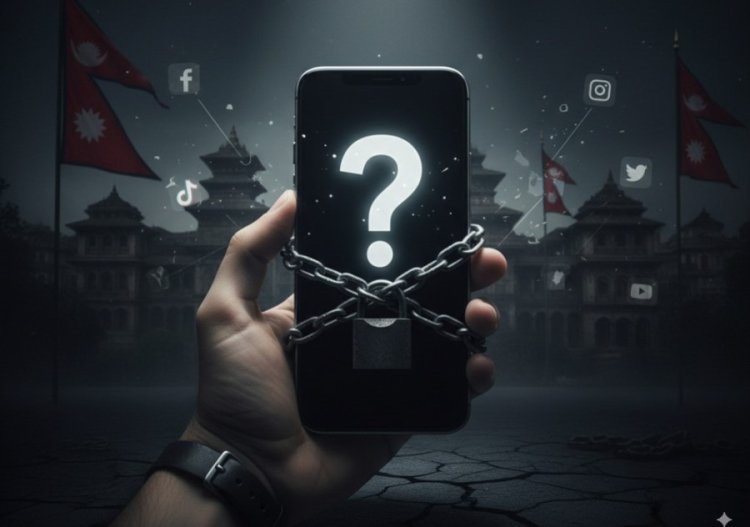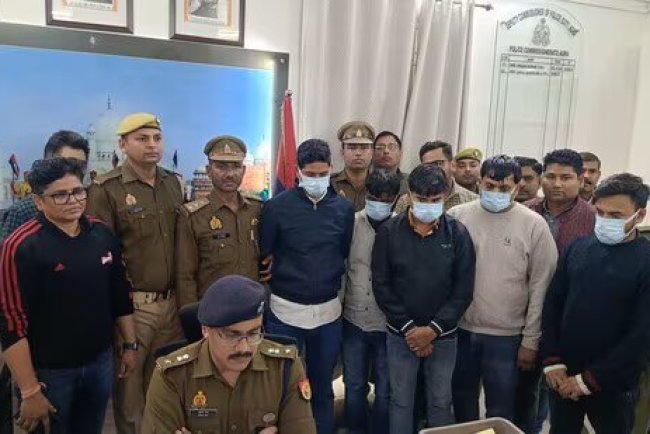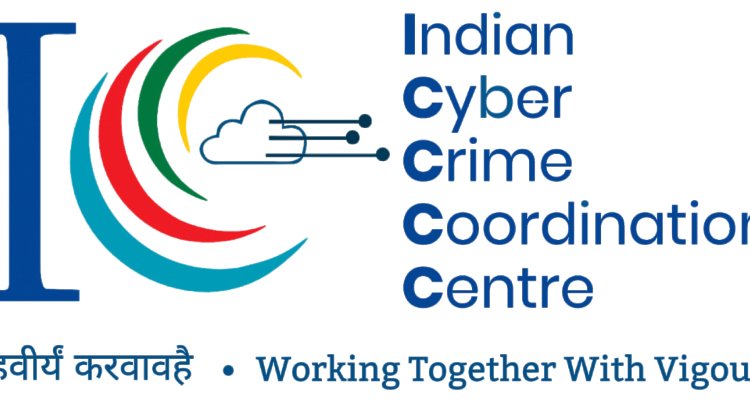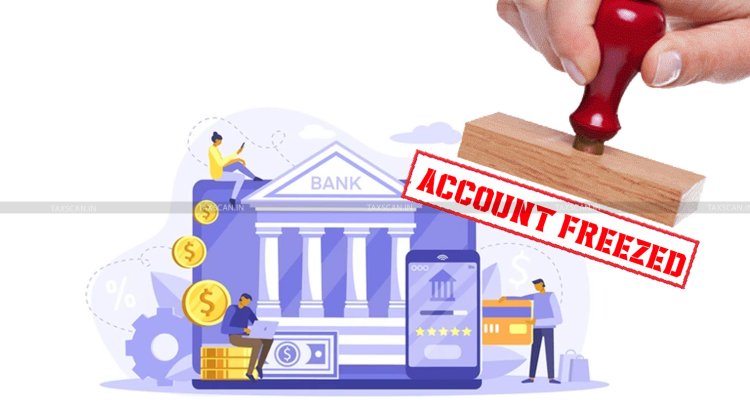Nepal’s Social Media Ban: Balancing Digital Sovereignty and Freedom
Nepal has banned 26 social media platforms, including Facebook, Instagram, YouTube, and WhatsApp. Discover why the government took this step, the legal and social reasons behind it, and what it means for digital freedom and sovereignty.
In September 2025, Nepal shook the digital landscape by banning 26 social media platforms, including global giants such as Facebook, Instagram, YouTube, WhatsApp, X (formerly Twitter), Reddit, and LinkedIn. This sweeping move, unprecedented in South Asia, was justified by the government as a necessary step to enforce accountability, control misinformation, and uphold national sovereignty in cyberspace.
The decision has sparked intense debates—with supporters applauding the government for finally standing up to tech behemoths and critics warning of censorship, isolation, and economic repercussions. To understand the significance of this ban, we need to look deeper into the reasons, impacts, and implications behind Nepal’s bold step.

What Exactly Happened?
On September 4, 2025, Nepal’s Ministry of Communication and Information Technology directed the Nepal Telecommunications Authority (NTA) and internet service providers to block 26 unregistered social media platforms.
This action followed a Supreme Court ruling that no platform should be allowed to operate in Nepal without registration. Earlier, on August 28, the government issued a seven-day ultimatum to social media companies to register locally, appoint a grievance officer, and set up a liaison office.
Most global players, including Facebook, YouTube, and X, ignored the directive. As a result, access was cut off. Interestingly, some platforms like TikTok, Viber, WeTalk, and Popo Live complied and remain operational, while others like Telegram are still under review.
Why Did the Government Ban Social Media Apps?
1. Enforcing Legal Compliance and Accountability
The core reason lies in the registration mandate. By requiring social media companies to register in Nepal, the government aims to bring them under its legal jurisdiction. Without local representation, authorities argue, platforms remain unaccountable when it comes to content moderation, data privacy, and user grievances.
For years, Nepal has struggled to get a response from companies headquartered abroad. Victims of online harassment, hate speech, or scams often faced delays—or complete silence—from platforms. Registration ensures that Nepal can demand swift action.
2. Curbing Misinformation and Online Abuse
The rise of fake news, hate speech, and cybercrime has been a growing concern. From politically motivated disinformation campaigns to financial scams, unregulated social media has been blamed for fueling unrest and division.
Officials highlighted that fake accounts were being used to spread ethnic and religious hate speech, undermine trust in government institutions, and even incite violence. By blocking unregistered apps, the government hopes to reduce these risks and hold platforms responsible for harmful content.
3. Complying with Supreme Court Orders
The judiciary played a central role in this ban. The Supreme Court had earlier instructed the government to regulate platforms, emphasising that no foreign service should operate without fulfilling local legal obligations. The government’s move was thus not only political but also a response to judicial pressure.
4. Asserting Digital Sovereignty
Beyond legalities, the decision reflects Nepal’s desire to assert digital sovereignty—the right to control and govern its digital ecosystem. For years, large multinational platforms have operated across borders without much regard for smaller nations’ laws.
By forcing registration, Nepal joins the growing list of countries like India, Indonesia, and the EU, which are demanding greater accountability from Big Tech. It signals that Nepal is no longer willing to let foreign companies dictate the rules of its online space.
Supporters vs. Critics: Two Sides of the Debate
✅ Supporters say:
- The move will protect citizens from cybercrimes and fake news.
- It ensures that platforms finally respect local laws.
- Nepal is setting an example for other small nations struggling to regulate Big Tech.
- Platforms that comply will still operate, so it’s not a blanket censorship.
❌ Critics argue:
- It restricts freedom of expression and access to information.
- Small businesses and freelancers relying on Facebook, Instagram, and YouTube will suffer economically.
- Blocking global platforms isolates Nepal digitally and may damage its global reputation.
- Registration requirements may lead to surveillance and tighter government control.
Impacts of the Ban
1. Communication Disruptions
For millions of Nepalis, Facebook and WhatsApp are not just entertainment—they are primary communication tools. Families with members abroad, students, and businesses that depend on these platforms have been hit hard.
2. Press Freedom Concerns
Organizations like the Committee to Protect Journalists (CPJ) and the Federation of Nepali Journalists have criticized the move, calling it a blow to press freedom and access to information. Many journalists relied on Twitter (X) for news updates and sources.
3. Economic Fallout
From influencers and small business owners to freelancers and digital marketers, thousands of Nepalis depend on global platforms for their livelihood. E-commerce businesses that operate through Facebook pages or Instagram shops have been particularly affected.
4. Digital Divide
Ironically, while the ban aims to curb misinformation, it may widen the digital divide. Wealthier citizens may use VPNs to bypass restrictions, while poorer users will be cut off entirely, deepening inequalities.
How Can the Ban Be Lifted?
- Mandatory user verification for accounts.
- Stronger penalties for spreading misinformation.
- Local grievance redressal mechanisms.
The Bigger Picture: Nepal in the Global Debate
Nepal’s ban is not an isolated incident. Around the world, governments are grappling with how to regulate Big Tech.
- India has introduced IT rules requiring platforms to appoint grievance officers in-country.
- The EU’s Digital Services Act (DSA) imposes strict obligations on large platforms.
- Indonesia temporarily banned PayPal and Steam in 2022 for failing to register with its government.
Nepal’s move aligns with this trend of national governments demanding compliance, though its sweeping ban on 26 apps at once is unusually bold.
Conclusion
Nepal’s decision to ban major social media platforms is a watershed moment in digital governance. It highlights the tension between sovereignty and freedom, control and openness, regulation and innovation.
For the government, the priority is accountability and social harmony. For citizens, the fear is censorship, isolation, and economic harm. The coming months will reveal whether social media giants comply with Nepal’s demands—or whether the standoff escalates into a prolonged digital blackout.
One thing is clear: the battle over who controls the digital space—governments or corporations—is only just beginning.
Follow cyberdeepakyadav.com on
Facebook, Twitter, LinkedIn, Instagram, and YouTube
What's Your Reaction?

























